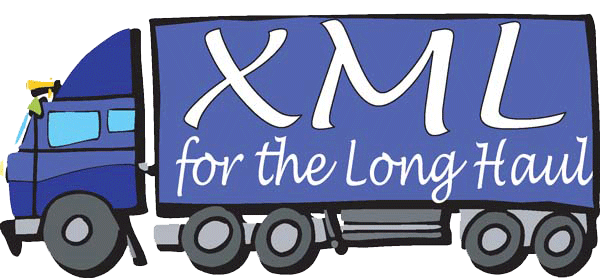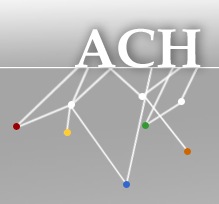[14 March 2010]
XML Prague took place yesterday and today, and I’m still coming down from the adrenaline high. Lots of good talks, in a single-tracked conference; I had the task of trying to knit them all together in the closing.
I’ll do a fuller trip report later, if working on my taxes doesn’t prevent it. But Norm Walsh has already asked that I post at least the last bit of my remarks.
[Readers who did not attend the conference or follow the streaming video need to know that in the opening sessions of the two conference days, Tony Graham and Sharon Adler had each referred at critical moments to the book of Genesis. One of Sharon’s slides bore the title “In the beginning was SGML,”, and Tony began his talk on Saturday with an extended reference to the book of Genesis: “In the beginning was the page. And the page was without form and void, …” Sharon wondered aloud whether people involved with descriptive markup all have God complexes; she may have something there. The text below also has some other references to things said at the conference, but I think for now I’ll spare readers the detailed annotation necessary to explain them all. Apologies in advance to any readers made uncomfortable by parodies of scripture.]
At the end of my talk, I described wandering through the streets of Prague, trying to find my way from the Strahov Monastery, where the conference dinner was held, back to my hotel, when suddenly I had a vision — one might almost say, a revelation.
And I saw in the right hand of him that sat on the throne an XML document canonicalized and serialized with EXI, containing seven pi-trees encrypted with seven public-key encryption key pairs.
And I saw a strong angel proclaiming with a loud voice, Who is worthy to parse the XML document, and to decrypt the encryption thereof?
And no one in heaven, nor in earth, neither under the earth, was able to parse the XML document, neither by buffering it in memory nor by processing it in streaming mode.
And I wept much, because no man was found worthy to parse and to process the XML document, neither to exploit its vocabulary-specific semantics nor to perform vocabulary-independent pretty-printing thereon.
And one of the elders saith unto me, Weep not: behold, the standards-compliant XML application, with support for C14n and EXI, for XML encryption and schema validation, and for interoperable stylesheet technologies like XSLT 17.2 and XSL FO 42.0, hath prevailed to open the XML document, and to decrypt the seven encryptions thereof, and to display it coherently, yea even for those who abhor the sight of angle brackets and prefer beautiful well-formatted text with tasteful images.
And every creature which is in heaven, and on the earth, and under the earth, and such as are in the sea, and all that are in them, heard I saying, Blessing, and honour, and glory, and power, be unto those that preserve data, and provide access to information, if not for ever and ever, then at least for the foreseeable future.
And the presentations, and the coffee breaks, were the second day.
And the nine conference organizers said, Amen. And the representatives of the two gold sponsors, and the four silver sponsors, and the four bronze sponsors, and the five media partners, and the three sister events, stood up and said Amen. And the one hundred and forty-four conference particpants clapped their hands and thanked the conference organizers for a great conference focusing on information that shall outlive the applications which create and process it.

 and have issued a
and have issued a  and the
and the  It’s a conference for anyone interested in descriptive markup, information preservation, access to and management of information, accessibility, device independence, data reuse — any of the things that descriptive markup helps enable. The deadline for
It’s a conference for anyone interested in descriptive markup, information preservation, access to and management of information, accessibility, device independence, data reuse — any of the things that descriptive markup helps enable. The deadline for